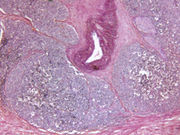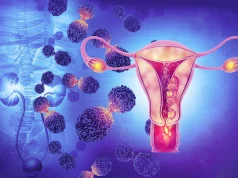Mechanism may explain prostate cancer treatment resistance among African-American men
WEDNESDAY, May 4, 2016 (HealthDay News) — Improper mitochondrial functioning may account for prostate cancer treatment resistance in African-American (AA) men, according to a study published online April 26 in the British Journal of Cancer.
Ajay K Chaudhary, Ph.D., from the Roswell Park Cancer Institute in Buffalo, N.Y., and colleagues assessed differences in mitochondrial dysfunction between AA and Caucasian-American (CA) men. Either flow cytometry or a Seahorse XF24 analyzer was used to measure cell death, cell cycle, and mitochondrial function/stress. Cellular protein expression was determined using immunoblotting and real-time polymerase chain reaction analyses. Finally, clonogenic, cell migration, and gelatin zymography assays were used to evaluate cell survival/motility.
The researchers found that glycolytic pathway inhibitor dichloroacetate (DCA) inhibited cell proliferation in both AA prostate cancer cells (AA cells) and CA prostate cancer cells (CA cells). There were reductions in endogenous reactive oxygen species, mitochondrial membrane potential (mtMP), and mitochondrial mass in AA cells, compared with CA cells. DCA upregulated mtMP in both cell types, whereas in CA cells, mitochondrial mass was significantly increased. In CA cells, DCA enhanced taxol-induced cell death, while sensitizing AA cells to doxorubicin. In AA cells, reduced expression of heat shock proteins (HSPs) was seen, while DCA induced expression of CHOP, C/EBP, HSP60, and HSP90 in CA cells. Compared to CA cells, AA cells were found to be more aggressive and metastatic.
“Restoration of mitochondrial function may provide [a] new option for reducing prostate cancer health disparity among American men,” the authors write.
Copyright © 2016 HealthDay. All rights reserved.








